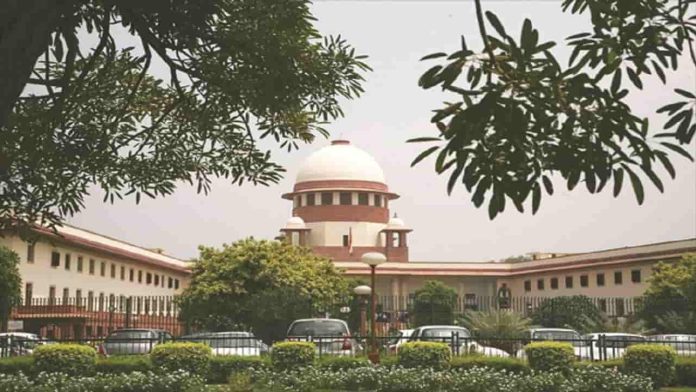The Supreme Court adjourned to December 12, a petition filed by Advocate Ashwini Kumar Upadhyay, seeking directions to the Central government to take steps against forceful and deceitful religious conversions.
The Bench of Justice M.R. Shah and Justice C.T. Ravikumar, while rejecting objections to the maintainability of the petition, observed during the brief hearing that everyone had a right to choose religion. However, it did not mean that one can be converted by luring.
If a person wanted to help a particular community, he was welcome to do so, but the purpose of charity should never be conversion. Every good work was welcome with a clear intention, it added.
The top court of the country ordered the Central government to file a detailed counter after obtaining necessary information from states regarding anti-conversion laws and other relevant information.
Representing the Union government, Solicitor General Tushar Mehta contended that the Centre was gathering data from the states. He said the State of Gujarat had a strong law in this regard, but the same has been stayed by the Gujarat High Court. The Bench told the SG to mention the matter before Chief Justice of India (CJI) D.Y. Chandrachud.
The SG further said that there were laws which prescribed a mechanism with independent persons to determine whether conversions were on account of allurement or due to religious or philosophical change of heart. While referring to Article 25 of the Constitution, the SG said that a person could not be permitted to propagate with an intention to convert.
After SG Mehta sought adjournment on the grounds that the Centre needed more time to collate the data from various states, the Supreme Court, while expressing its displeasure at the request, observed that this was a very serious matter and should not be taken as an adversarial litigation.
Appearing for Kerala Yukthivadi Sankham, Senior Advocate Chander Uday Singh contended that it was a group of rationalists. Questioning the maintainability of the plea, Singh submitted that similar petitions had been withdrawn in the past without the liberty to approach again.
While rejecting the arguments on the maintainability of the petition, the top court of the country agreed to hear it.
SG Mehta submitted that any rationalist should support the petition.
Representing the petitioner, Senior Advocate Arvind Datar contended that the states who wanted to file their response, should do it. The Bench then directed the Centre to file an affidavit based on information gathered from the states.
Representing an intervenor, Senior Advocate Sanjay Hegde opposed the petition.
SG Mehta, while replying to a lawyer who opposed the petition stating that he was appearing for a priest, replied that a priest was not concerned with the proceedings unless he was involved in religious conversions.
Earlier in September this year, the Division Bench of Justice M.R. Shah and Justice C.T. Ravikumar had issued notice to the Union of India and states on a petition filed by Bharatiya Janata Party leader Ashwini Upadhyay, seeking directions to both the Centre as well as states to take stringent steps against forcible and fraudulent religious conversions through intimidation, allurement, or otherwise.
On August 19, 2021, the Division Bench of Gujarat High Court, comprising Chief Justice Vikram Nath and Justice Biren Vaishnav, had stayed Sections 3, 4, 4A to 4C, 5, 6 and 6A of the amended act, saying that these provisions violated the right to life.
The High Court had observed that the mere fact that a marriage was between people of different religions did not prove that it had been conducted for the purposes of unlawful conversion, since there was no proof of force, allurement or fraud being involved.
In response, the Gujarat government filed an affidavit in the Supreme Court, stating that the provisions of Gujarat Freedom of Religion Act, 2003 were amended in 2021 to ensure that the process of renouncing one religion and adopting another was voluntary, genuine, and bona fide, besides being ‘free’ from any force, allurement or fraudulent means.
As per the Gujarat government, Section 5 of the Act mandated prior permission of the District Magistrate for religious conversion, through marriage or otherwise, was a ‘valid’ provision of law, which held the field for the last 18 years, the state government has claimed.
It said the objective of the enactment was to ‘maintain’ the public order within the state of Gujarat by protecting the cherished rights of vulnerable sections of the society, including women and economically and socially backward classes.


